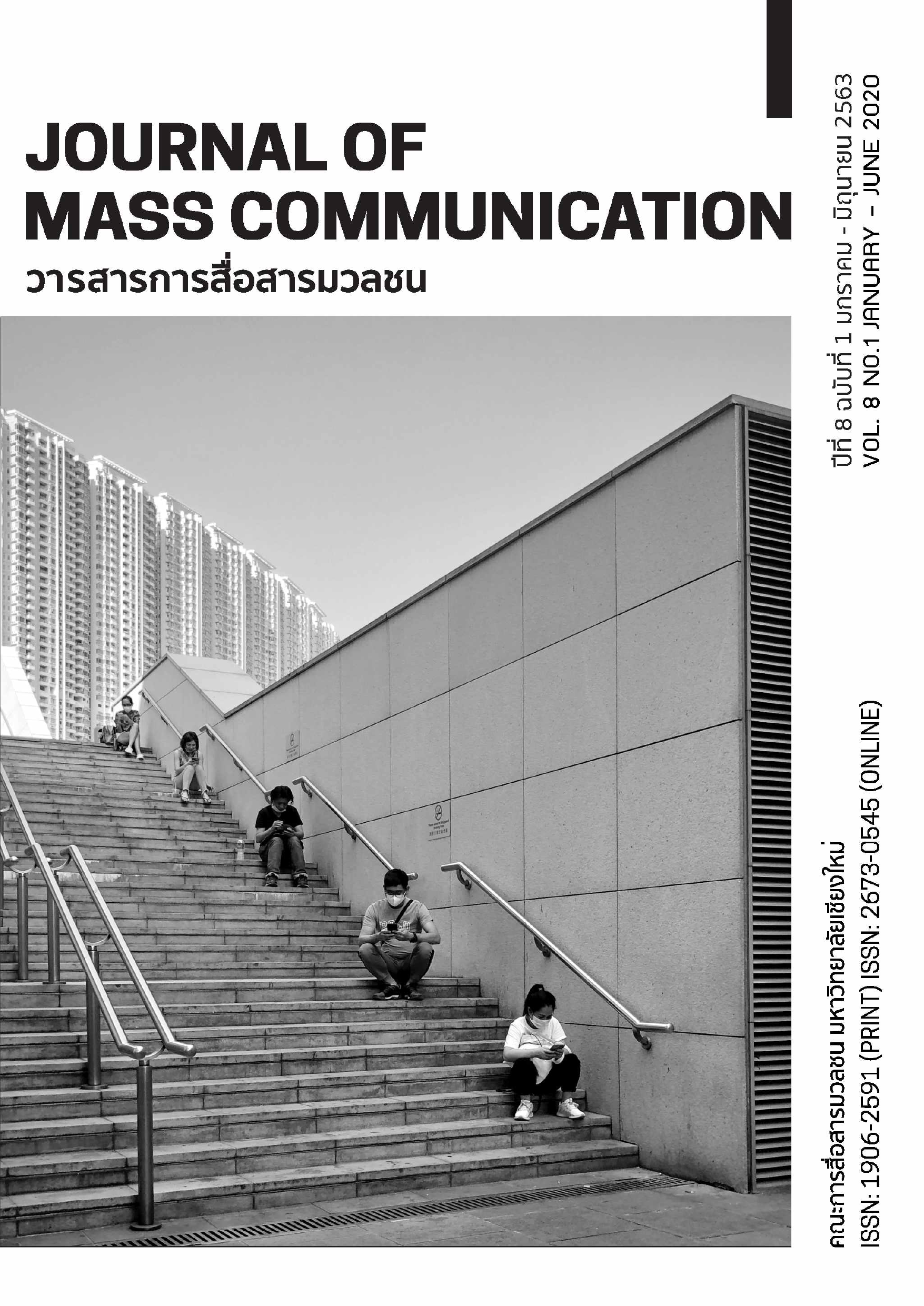Phantom Love: The Politic of Love and Grief of Males to (ghostly) females in Nang Nak, Pee Mak Phra Khanong, Sang Krasue [Inhuman Kiss] and Songtor
Main Article Content
Abstract
This article aims to study the politics of love and grief through the male characters who are the object that was made by love. This tends to examine the past results of some other studies which they’ve showen the similarly preconceived result. The show explained that the female (in terms of a ghost) is the object that was made by an ideology of love in the patriarchal society. This study analyzed four texts; Nonzee’s Nang Nak, Banjong Pisanthanakun’s Pee Mak Phra Khanong, Sitisiri Mongkolsiri’s Sang Krasue [Inhuman Kiss] and Nandanee’s Songtor [ส่งต่อ]; and was conducted with the applications of Sara Ahmed’s The Cultural Politics of Emotion. This result suggests that firstly, male characters can be the object that was made by love as well as female characters. Secondary, female ghosts were conjured by the power of the male’s love; instead, they themselves returned to the object of their love. Besides, the return of the conjured ghosts has haunted male characters. Inhuman’s kiss thus cause the pain of a male who fell in love with them. He has suffered for the lost object. Loss and love which were quoted that oppress the female mindset certainly reveals a practice of power reaction of ‘soft power’, in terms of ‘love’. Therefore, this argues that Mak’s ordination was unwilling because it is the only way he can be free from melancholy and the female ghosts may be a male’s imagination of haunting love.
Article Details
ลิขสิทธ์ที่ผู้เขียนบทความต้องยอมรับ
References
จินตวีร์ วิวัธน์. (2558). มฤตยูเขียว. กรุงเทพฯ: กรู๊ฟ พับลิชชิ่ง.
จินตวีร์ วิวัธน์. (2558). มนุษย์ชิ้นส่วน. กรุงเทพฯ: กรู๊ฟ พับลิชชิ่ง.
ไชยรัตน์ เจริญสินโอฬาร. (2562). “บทนำ”. ใน ไชยรัตน์ เจริญสินโอฬาร (บรรณาธิการ). การสร้างการรับรู้ในสังคมไทย เล่ม 2. หน้า ix-xlvi. กรุงเทพฯ: สำนักงานกองทุนสนับสนุนการวิจัย (สกว.).
นันดานี. (2562). “ส่งต่อ”. ใน ธัชชัย ธัญญาวลัย (บรรณาธิการ), ร่างของอดีต. กรุงเทพฯ: อาร์ตี้เฮ้าส์.
นิรินทร์ เภตราไชยอนันต์. (2550). ภาพตัวแทนผีผู้หญิงในละครโทรทัศน์. วิทยานิพนธ์วารสารศาสตรมหาบัณฑิต (สื่อสารมวลชน) มหาวิทยาลัยธรรมศาสตร์.
วิชุดา ปานกลาง. (2539). การวิเคราะห์การถ่ายทอดความหมายเรื่อง "ผี" ในภาพยนตร์ไทยเรื่อง "แม่นาคพระโขนง" พ.ศ.2521-2532. วิทยานิพนธ์นิเทศศาสตรมหาบัณฑิต จุฬาลงกรณ์มหาวิทยาลัย.
Arnika Fuhrmann. (2016). Ghostly Desires: Queer Sexuality and Vernacular Buddhism in Contemporary Thai Cinema. Durham: Duke University Press.
Sara Ahmed. (2004). The Cultural Politics of Emotion (2sdedition). Edinburgh: Edinburgh University Press.


